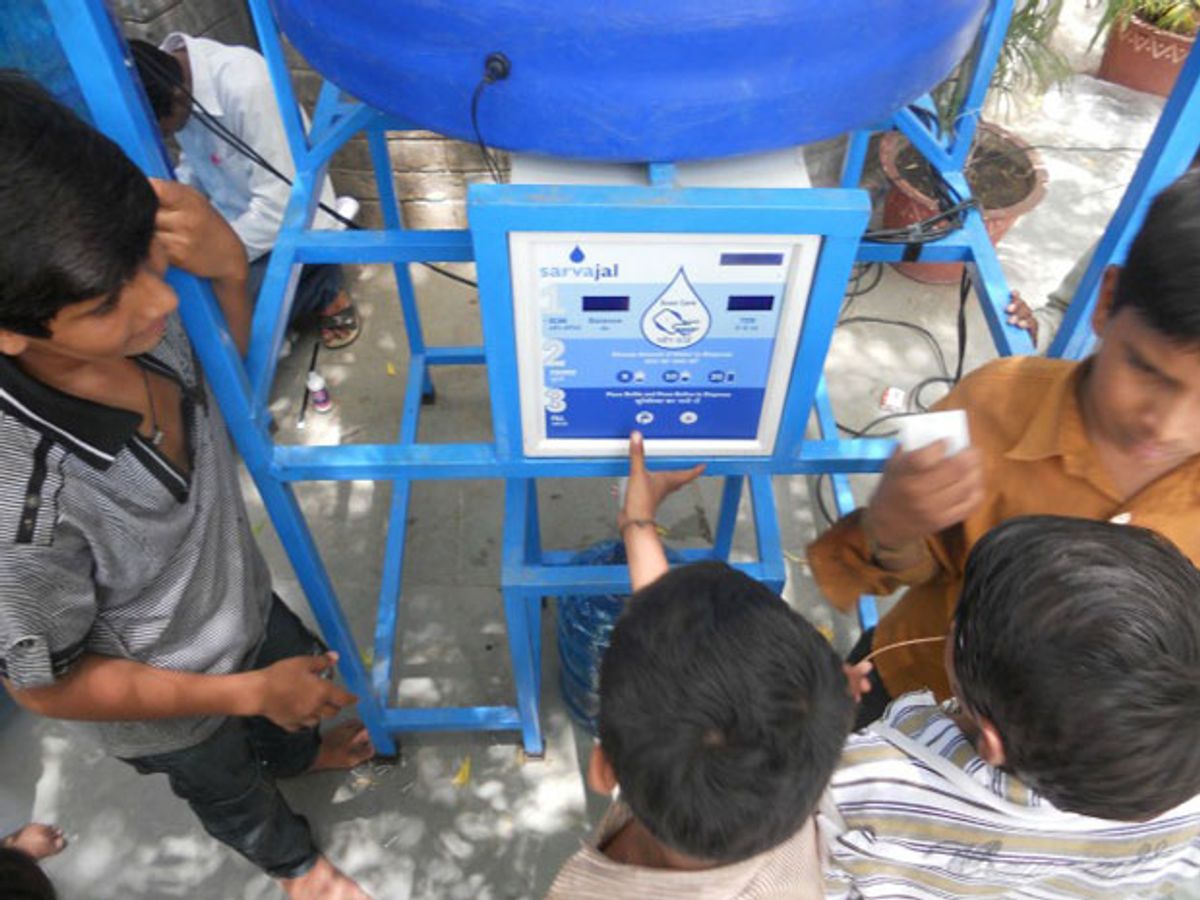Smart solar-powered "water ATMs" have become a growing source of clean water for rural villagers in India. Now the ATM franchise aims to extend services into India's urban slums where women and girls typically spend hours waiting for tanker trucks to deliver fresh water.
The Sarvajal organization has built a franchised network of its "water ATMs" serving 110,000 rural customers in India—targeting regions where nobody else wants to get into the business of delivering water the "last mile" to reach villages that don't have the luxury of simply turning on the tap for fresh water. Customers simply swipe a prepaid smart card at the ATM to collect their water, according to Yale Environment 360.
But the ATMs do more than just dispense water. They leverage the prepaid model of cellphones on the business side and use mobile technology to enable real-time monitoring with the ATMs' sensors. That allows Sarvajal to track water quality, see what times people draw upon their water supply, and quickly fix any problems that come up.
That all adds up to valuable "big water data" and "business intelligence," said Anand Shah, an Indian-American entrepreneur and CEO of Sarvajal. Shah spoke with Yale Environment 360 spoke at length about his latest plans to expand the water ATMs to India's urban slums. That move presented a huge challenge in terms of dealing with competitors and trying to convince the local government that Sarvajal did not threaten its authority in distributing water.
Sarvajal is still losing money in its efforts, but Shah figured the organization needs about 800 franchisees to break even. The organization has already seen steady growth from serving 60,000 people in 2011 to reaching 110,000 people in 2013—all for the price of less than $3 per month per family.
The water ATMs have already changed social behaviors in the villages. Whereas women and girls used to take on the water-carrying duties, men have increasingly proved eager to collect water from the ATMs to show their earning power. And everyone is proud of holding a smart card.
Photo: Sarvajal
Jeremy Hsu has been working as a science and technology journalist in New York City since 2008. He has written on subjects as diverse as supercomputing and wearable electronics for IEEE Spectrum. When he’s not trying to wrap his head around the latest quantum computing news for Spectrum, he also contributes to a variety of publications such as Scientific American, Discover, Popular Science, and others. He is a graduate of New York University’s Science, Health & Environmental Reporting Program.



